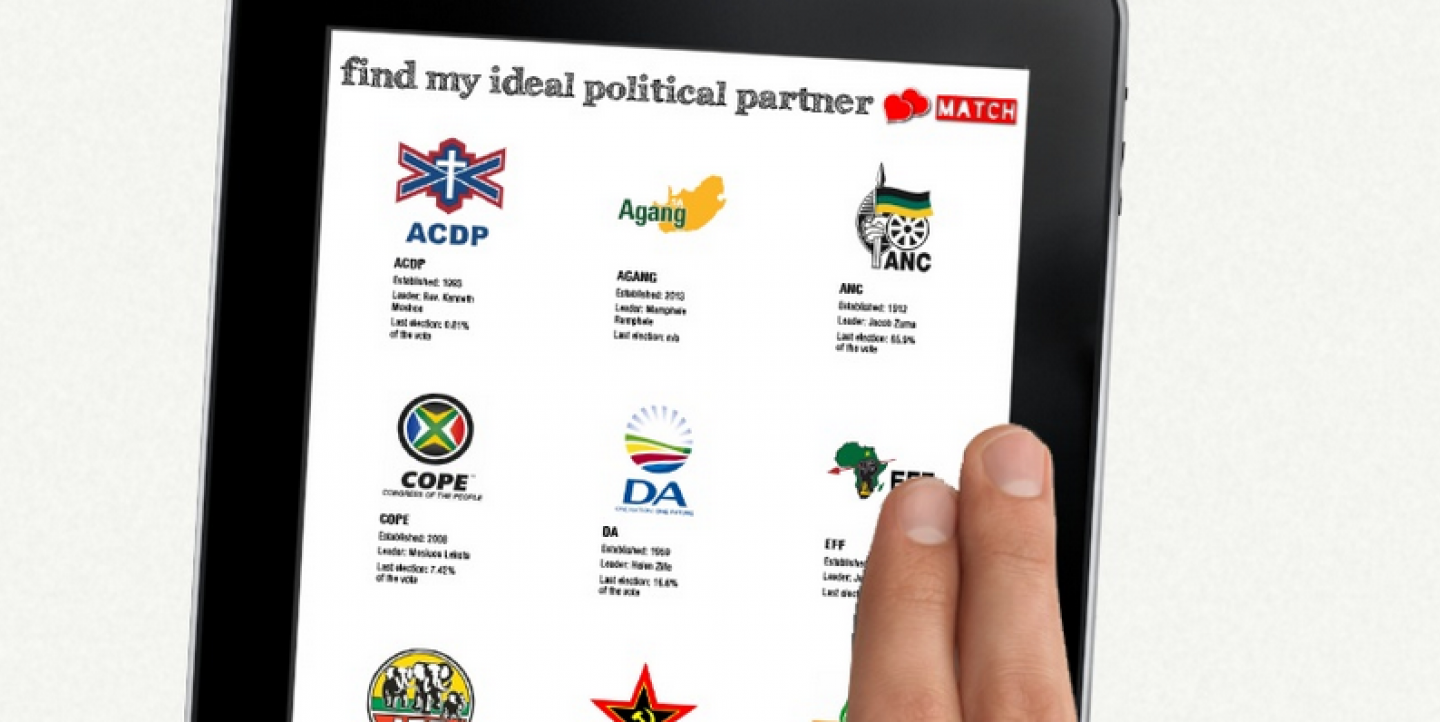How can a nation include young people in the electoral process when only 10 percent of its eligible 18- and 19-year-olds register to vote?
A team from the Sunday Times in South Africa, where just a fraction of eligible young people register to vote, thinks it may have a solution.
Its new “dating game” app aims to engage young South Africans in the voting process by helping them find the political party that best matches their interests. The app, called Party Match, won first prize at Sub-Saharan Africa’s first Editors Lab newsroom hackathon last weekend.
The Sunday Times team designed the app during a 48-hour brainstorming session hosted by Africa’s largest digital news publisher, 24.com. It was organized by the African Media Initiative, Global Editors Network and Google. Fourteen three-person teams -- each consisting of a journalist, designer and developer -- from all of South Africa’s major news organizations competed.
Party Match team members Loni Prinsloo (journalist), Fiona Krisch (designer) and Carla Goldstein (developer) won a ZAR 20,000 (about US$2,000) cash prize, plus an all-expenses-paid trip to the GEN Summit and Global Data Journalism Awards Ceremony in Barcelona, Spain. There, their team will compete with Editors’ Lab winners from 18 other countries during a Global News Hackathon.
“Party Match demonstrated the local potential for news games and the importance of humor in building audience engagement around ‘boring’ issues such as politics," said jury member and AMI chief digital strategist Justin Arenstein, who helped organize the event as part of his ICFJ Knight International Journalism Fellowship. “The creative execution on Party Match was also heads above the other 13 contestants.” Arenstein is also a judge for GEN's Global Data Journalism Awards.
The prototype app is designed for tablets, with smartphone and desktop versions planned. Newsrooms will be able to analyze data from the app to help track opinion trends among users.
“None of our team members had ever worked together or gone to a hackathon before, nor had any of us worked on a news app before,” Krisch said in the release. “We were initially terrified, but then decided to keep it simple. We focused on just one issue: how do you get South Africa’s apathetic young to engage with politics? How do you get them to think about what each party has to offer, and how this impacts on their lives?”
City Press won second place, securing technical support from Code for Africa for a crossmedia app designed to help the estimated 3,600 people raped every day in South Africa. The app, LifeCoach, tries to guide rape survivors through the process of pressing charges against their attackers, while also linking survivors with nearby counselors and support networks.
Other notable projects included a lightweight paywall platform that fences off individual articles; an Android app that gives citizen reporters step-by-step editorial guidelines and checklists for reporting news from the field; and a cross-platform app that alerts South African citizens to local Environmental Impact Assessment (EIA) applications and other development notices in their neighborhoods.
Projects submitted by the 14 competing teams can be viewed online at GEN’s Editors Lab page and Hacks/Hackers Africa.
Image: Party Match app, courtesy of GEN.


